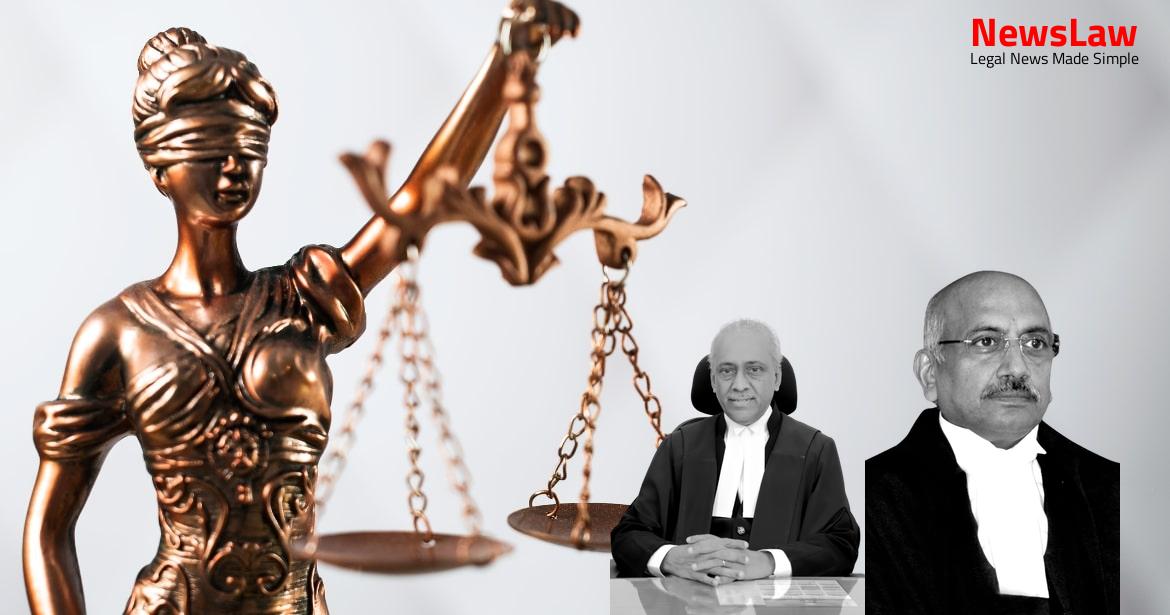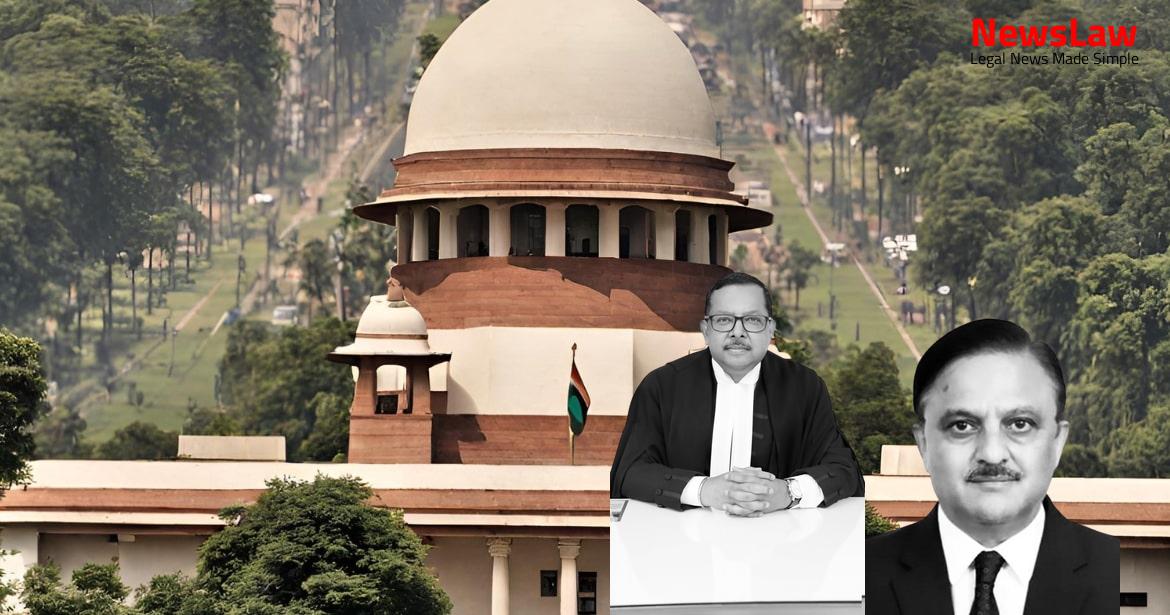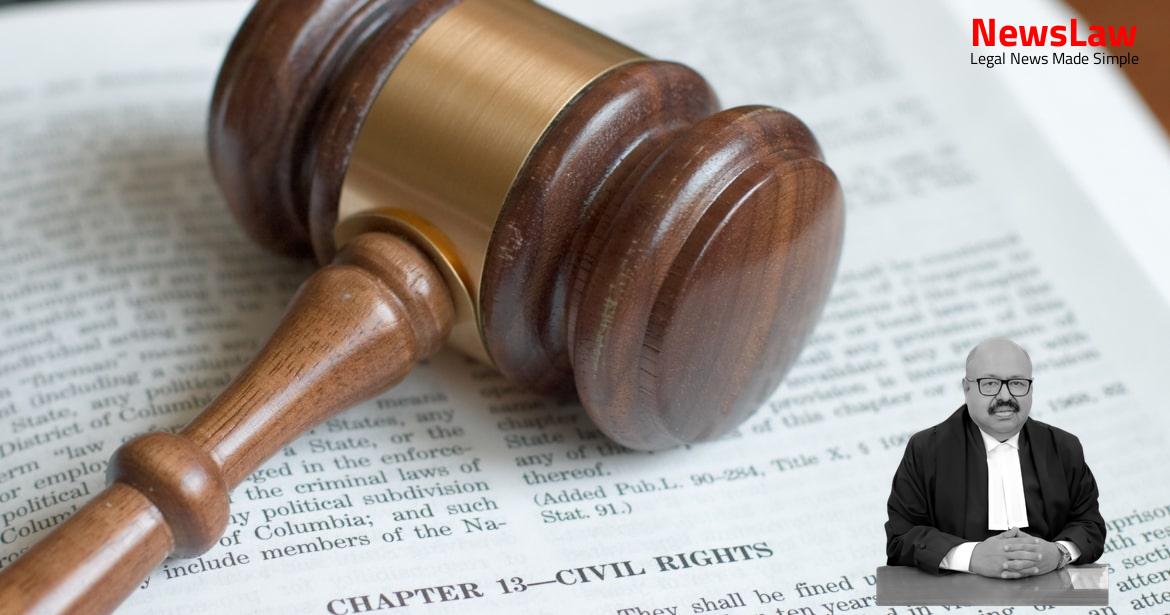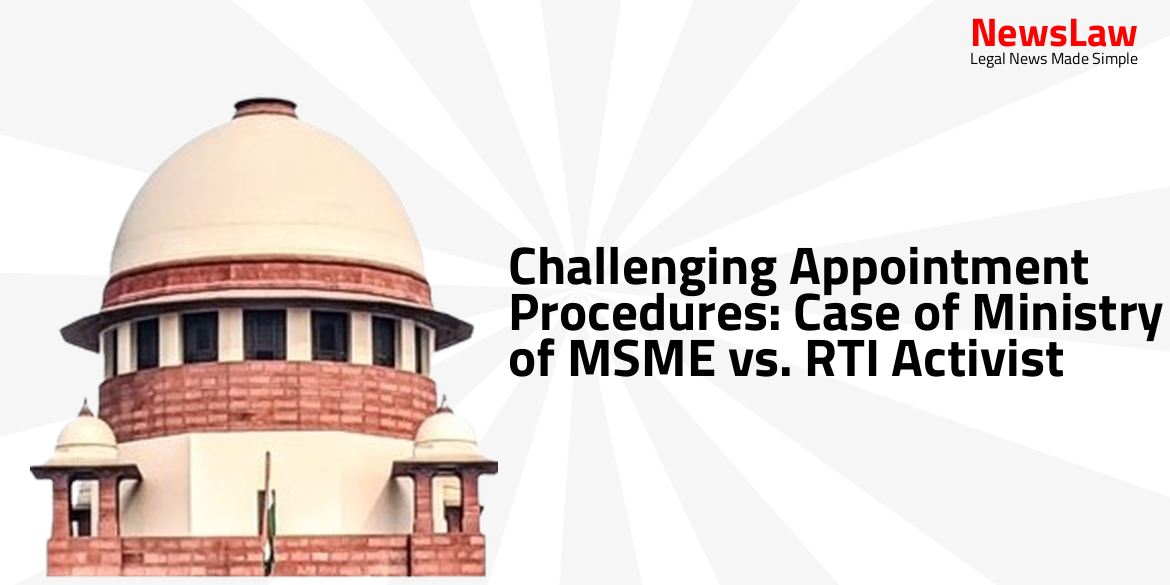Delve into the realm of legal analysis as courts emphasize procedural adherence to ensure justice is served efficiently. This summary dissects the importance of following procedural rules to achieve substantial justice in a case involving the interpretation of Order XIV Rule 2 and Order XX Rule 5. Stay tuned for a detailed exploration on how procedural mandates impact court decisions and case outcomes.
Facts
- Defendant filed an application to frame issues under Order XIV Rule 2(2) of the Code, which was dismissed by the trial court on 3.10.2019.
- The defendant challenged the trial court’s order in a revision petition under Article 227 of the Constitution of India.
- The High Court directed the trial court to frame the preliminary issue of res judicata.
- Plaintiffs filed O.S. No. 95 of 2016 against their paternal aunt for declaration of ownership of the suit property and other reliefs.
- Defendant initially filed an application under Order VII Rule 11 for rejection of the plaint, which was dismissed on 20.6.2017.
- Only issue Nos. 5 and 6 were decided regarding res judicata and limitation as preliminary issues on 3.2.2006.
- Finding on the preliminary issue was set aside by the Court on 23.9.2021, over 15 years later.
- The matter was remanded back to the trial court due to absence of decision on all issues, hindering expeditious disposal of the case.
- Plea of res judicata may be determined as a preliminary issue in appropriate cases when not a disputed question of fact or a mixed question of law and fact, as per Ramesh B. Desai case.
- Directing the trial court to frame preliminary issues on res judicata is not ideal for speedy disposal of the case, as per Order XIV Rule 2 of the Code.
- Judgments on all issues should be pronounced unless they involve both law and fact, where the case may be disposed of on an issue of law first.
- In a representative suit under Section 92 of the Code, the judgment binds the parties and operates as res judicata, but in this case, the suit was not barred by res judicata as decided after second appeal.
Also Read: Landmark Judgment on Compensation for Fatal Accident
Analysis
- Abdul Rahman case involved a suit filed in 1999 to declare paternity and adverse possession.
- Patna High Court ruled that all issues, except jurisdiction and legal bar, must be judged together.
- Bombay High Court emphasized the duty to hear and decide all issues post-amendment.
- Jammu and Kashmir High Court clarified the limitations on deciding preliminary issues of law.
- Himachal Pradesh High Court highlighted the need to avoid piecemeal trials and remands.
- The case law Abdul Rahman, Srihari Hanumandas Totala, and Jamia Masjid were cited regarding framing preliminary issues.
- The judgment discusses the admissibility of adjudicating the issue of res judicata as a preliminary issue.
- The Court emphasizes the importance of considering all issues together unless there is a jurisdictional or statutory bar requiring separate consideration.
- Procedural rules are deemed to serve the cause of justice, with the ultimate goal of achieving substantial justice.
- The case involves a dispute related to res judicata and the rejection of a plaint under Order VII Rule 11.
- The importance of expeditious disposal of cases is highlighted through the interpretation of Order XIV Rule 2 and Order XX Rule 5.
- It is emphasized that all issues should be decided to avoid the need for remand by the appellate court.
- The High Court’s decision to remand the case for framing preliminary issues is deemed contrary to the procedural mandate and therefore set aside.
Also Read: Judicial Review of Search and Seizure Authorization
Case Title: SATHYANATH Vs. SAROJAMANI (2022 INSC 529)
Case Number: C.A. No.-003680-003680 / 2022



